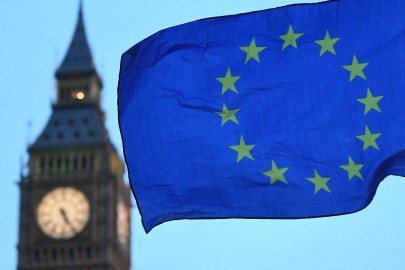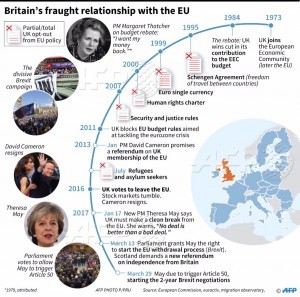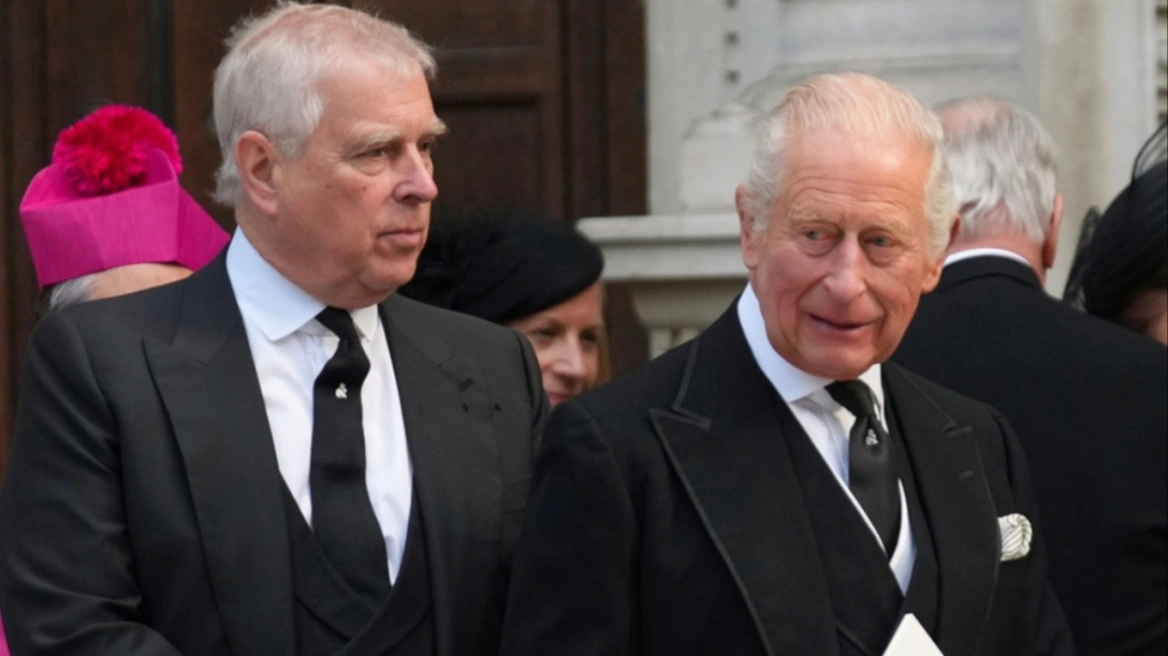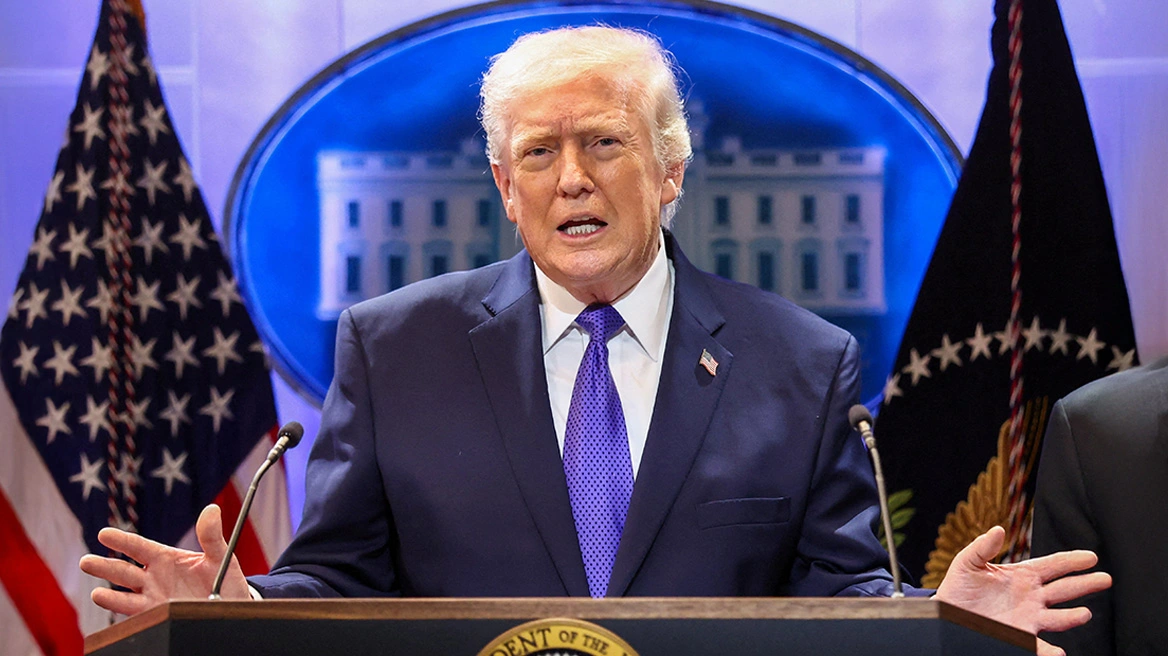Britain said Monday it will launch the process of leaving the European Union on March 29, setting a historic and uncharted course to become the first country to withdraw from the bloc by March 2019.
Nine months after the stunning referendum vote for Brexit, Prime Minister Theresa May’s government will finally trigger Article 50 of the EU’s Lisbon Treaty next week, starting a two-year departure.
“We are on the threshold of the most important negotiation for this country for a generation,” said Brexit minister David Davis.
The European Commission said immediately that it was ready to begin negotiations, although a source in Brussels said it would take “four to six weeks” to arrange a summit to agree a common EU position.
Britain is one of the oldest and largest members of the 28-nation bloc, and its departure has raised fears for the EU’s future as eurosceptic movements gain support across the continent.
London has repeatedly said it wants to maintain good relations with its European allies, but major battles await, in particular over budget contributions, immigration and future trade ties.
Britain has said it wants to agree its divorce and a new relationship with Europe within the two years.
“We are going to be out there, negotiating hard, delivering on what the British people voted for,” May said on Monday.
But lawmakers have warned that her government must prepare for the risk they might fail — and for Britain to crash out of the EU with no agreement in place.
EU seeks ‘realism’
The prime minister has long said she would start the Article 50 process by the end of this month.
Britain’s ambassador to the EU, Tim Barrow, on Monday informed the office of EU President Donald Tusk that it would do so on March 29, May’s spokesman told reporters.
“We wish the talks to begin promptly, but we fully respect that the 27 (other EU nations) will want to agree their position in advance,” the spokesman said.
The notification of Article 50 will take the form of a letter to Tusk, likely outlining Britain’s key objectives, followed by a statement by May to MPs in the House of Commons.
Tusk said he would issue draft guidelines for the negotiations within 48 hours, and officials said EU leaders are then likely to meet at a special summit in early May to approve them.
“Everything is ready on this side,” Margaritis Schinas, the spokesman for European Commission chief Jean-Claude Juncker, told a briefing.
Britain’s path will be set just days after the EU celebrates the 60th anniversary of its founding Treaty of Rome on March 25.
Jeroen Dijsselbloem, president of the finance ministers of the 19-country euro currency area, said he wanted “realism” from May’s government.
“I hope for realism on the sequence of things, realism on the price that it is going to cost, realism on the complexity and thus the timespan that will be necessary, because those are the things that I have missed so far from the British side,” he said.
London says the Brexit process is irreversible once Article 50 is triggered, although experts have said there is no legal ban on member states changing their minds before leaving the EU.
‘New positive partnership’
May’s preparations were wrong-footed last week when Scottish First Minister Nicola Sturgeon, who opposes Brexit, announced plans to hold a new independence referendum in a bid to keep its EU ties.
The prime minister has said that “now is not the time”, and is expected to visit Scotland as part of a pre-Brexit tour of Britain that began on Monday in Wales and will also take in Northern Ireland.
May’s plan to withdraw Britain from Europe’s single market has also provoked concern in Northern Ireland, by raising the prospect of the return of customs posts with EU member Ireland to the south.
Davis said ministers would seek a Brexit deal “that works for every nation and region of the UK and indeed for all of Europe –- a new, positive partnership between the UK and our friends and allies in the European Union”.
Scotland and Northern Ireland voted to stay in the EU in the June 23 referendum, while England and Wales voted to leave, resulting in a UK-wide vote of 52 percent for Brexit.
Ask me anything
Explore related questions






